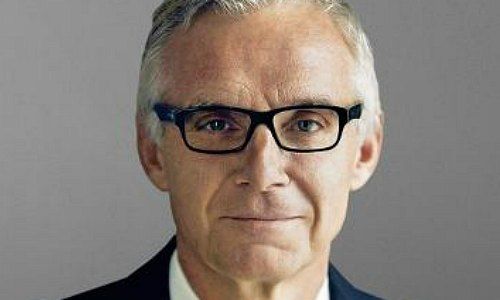Urs Rohner: Better Late Than Never
Credit Suisse's chairman has one defining character trait: he only responds to a massive amount of pressure. It would be in the bank's best interest if he did the same following a contentious shareholder meeting on Friday.
Nerves are fraying at Paradeplatz: many Credit Suisse shareholders are expected to reject the Zurich-based bank's pay report. Swiss-based Ethos Fund has urged chairman Urs Rohner's ouster, a call that influential Swiss pension funds are likely to heed.
What proportion of shareholders will mobilize against the pay, Rohner reelection or other items is futile exercise in guesswork. Major shareholders like Qatar's powerful sovereign wealth fund, the Olayan family's holdings, U.S. fund house Harris, Norway's Norges state fund and asset manager Blackrock can be expected to swing into line behind the bank.
But considering the widespread shareholder discontent, Rohner could still get a rude awakening.
Last-Minute Concessions
The Credit Suisse overseer attempted to reverse the sentiment, using quarterly results to unveil a host of last-minute measures aimed at appeasing angry investors.
Rohner realized that Credit Suisse's Good Friday intervention paring back big bonuses for Tidjane Thiam and freezing board pay did little to dampen shareholder ire: U.S. advisor Glass Lewis termed it «too little, too late» from the bank and reinforced its opposition stance.
Lack of Ideas, Vision
«Too little, too late» is an appropriate summary of Rohner's leadership at Credit Suisse.
The 58-year-old former lawyer's six years atop the board have been marked by a lack of ideas and weak strategic vision. Not to mention that he has always steadfastly rejected any responsibility for the countless past scandals – mis-selling mortgage securities or more notably helping Americans cheat the Internal Revenue Service – that Credit Suisse has spent recent years mopping up.
The stance is problematic because Rohner was Credit Suisse's chief lawyer from 2004 on, and later advanced to operating chief under CEO Oswald Gruebel.
Responsive to Pressure
Under Rohner, the bank's board has regularly dithered with critical decisions, often only intervening when a severe course correction is needed.
In other word, Rohner only responds to massive outside pressure: Credit Suisse only conceded the bonuses after shareholders had mounted a broad enough opposition which threatened the bank with the ignominy of the first binding no-vote in Swiss corporate history.
Peak of Powers
Rohner's dividend sweetener comes at an odd time: firms normally avoid any payout predictions this early in the year. Clearly, angry shareholders have done their part to hasten Credit Suisse's decision for more generous payouts.
When Rohner took the board chair six years ago, Credit Suisse seemed to be at the peak of its powers: CEO Brady Dougan had navigated the Swiss bank through the financial crisis a state bailout like UBS was forced to take, and its strong investment bank was primed to benefit from a market recovery.
SNB Warning
What Dougan and Rohner both failed to spot was that the regulatory tide was rapidly changing against a European or Swiss investment banking powerhouse. In 2012, Switzerland's central bank – which doesn't regulate banks – took the unprecedented step of ordering Credit Suisse to halt its dividend payouts in favor of bolstering its capital.
What happened? Instead of examining Credit Suisse's strategy, Rohner then allowed investment banker Dougan to double down on risk-taking until Credit Suisse ended up in a far dicier capital position than it was when the bank was blindsided by the Swiss National Bank.
Late in his tenure atop Credit Suisse, Dougan publicly admitted the failing. Rohner, who possesses Teflon-like resistance to criticism, has had trouble doing so. It wasn't until summer of 2015 that Rohner finally responded, dumping Dougan for Thiam.
Nimble Reversal
Rohner backed Thiam's strategic reversal – quickly raising 6 billion Swiss francs for capital and chopping and changing the bank – with his typical agility. In fact, merely months before, he had defended Credit Suisse's strategy and denied the need for a cash injection.
Calls for the slick, fast-talking former litigator to resign also aren't new, but criticism typically rolls off Rohner like water off a duck's back.
Missing Confession
The same applies now: instead of openly admitting that pay has been far too high for himself and for top management for two consecutive years of billion-franc losses, Rohner is only able to say that he had «underestimated» the shareholder opposition.
Rohner has said before he wants to chair Credit Suisse's board until 2021. He isn't doing the bank or its shareholders any favors by doing so. The force of shareholder backlash may prompt him to consider stepping down earlier than planned. He would again be too late – but better than not at all.




























